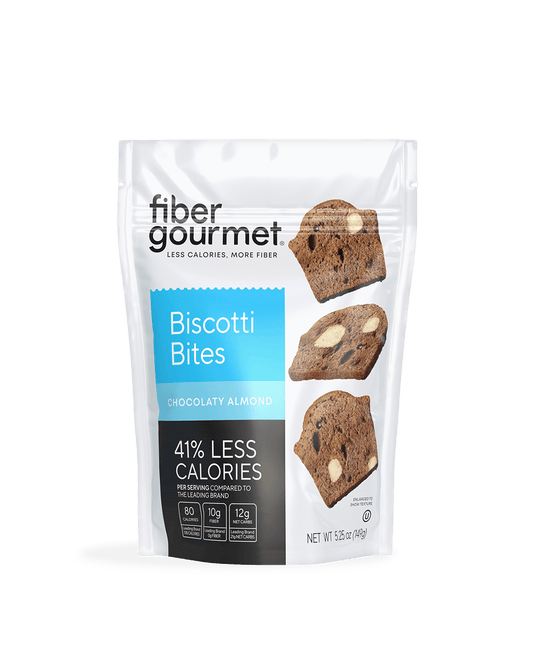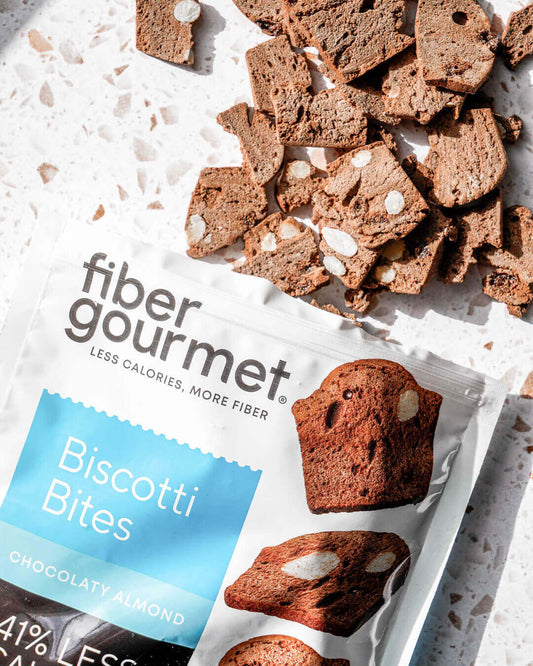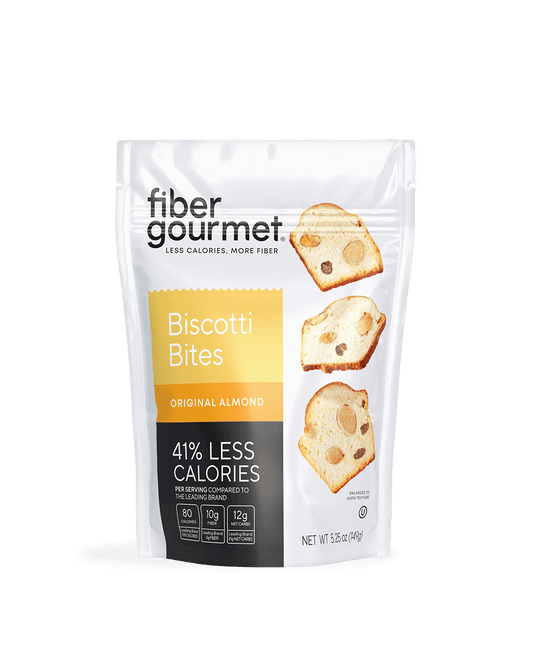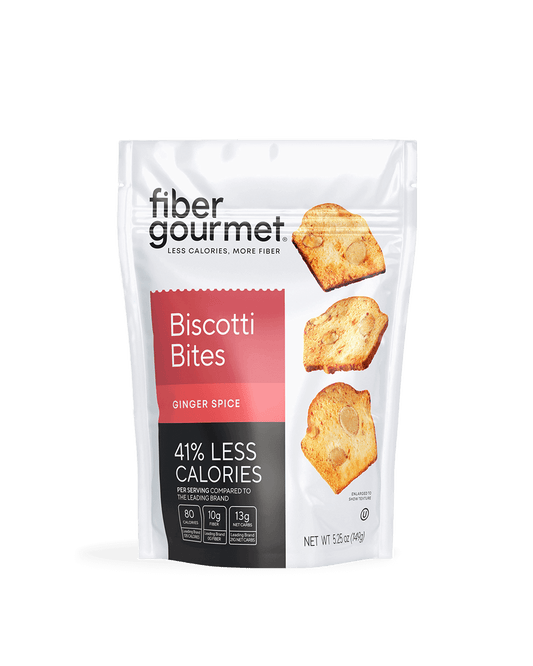Why FiberGourmet?
It’s easy to get overwhelmed in a saturated market. The shelves offer a variety of items posing as healthy choices. But often, they’re nothing but impastas-products made out of edamame or chickpeas, in the form of pasta. Or "snacks" that have an eerie resemblance and taste of cardboard.
Fiber Gourmet offers a selection of products that are really healthy, and really pasta (or snacks...or flour...), with a significant amount of fiber and an insanely low amount of net carbs and calories.

Fiber Gourmet is real pasta.
Not pretend-to-be pasta.
No gummy textures.
No nutty aftertaste.
No mushiness.

10% Profits to Charity
At the heart of Fiber Gourmet lies a strong commitment to philanthropy. In 2022, Fiber Gourmet contributed products valued at $150,000 to charitable causes, and they have made an ongoing commitment to donate 10% of their annual profits to charity. To this day, Fiber Gourmet has generously supported various charitable endeavors, with a particular focus on education that prioritizes the development of each individual child, aiming to empower future generations.
Transform your well-being.
RS4, the recipe for gut health.
Every product features RS4, a good-for-you fiber-boosting starch that weighs in at a slim 0.4 calories per gram. Stack it up next to traditional flour at 4 calories per gram and you’ll see why this fiber-packed starch has become a fan favorite.
Understanding Insoluble FiberMost people know that fiber is important in the diet. What many do not know is there are two different types of fiber (soluble and insoluble) and the benefits they can offer.What Is Insoluble Fiber?Insoluble fiber is found in foods such as whole-wheat bread, seeds, vegetables, and in the skin of the fruit. This is the fiber that Fiber Gourmet foods are infused with, using an insoluble fiber-rich starch known as RS4.How it WorksInsoluble fiber doesn’t go through the process of digestion like soluble fiber, and many other foods; therefore, it does not provide any calories to the body.Instead, insoluble fiber passes straight through the small intestine to the colon without being digested. Regular starches contain calories because we digest them and use their glucose for energy. But since our bodies don't digest insoluble fiber, it doesn't directly give us energy and therefore its caloric value is slashed. What Are Its Benefits?Insoluble fiber often doesn’t get the recognition it deserves, as most people don’t know exactly how great this unique fiber is. Insoluble fiber has several important benefits:Not only do insoluble fibers not add to the calorie count, but they can also be an excellent resource for helping to control weight after meals. Insoluble fiber triggers hormones that make you feel fuller, helping you to eat less.An additional significant benefit of fiber is the role it plays in preventing constipation. Constipation is not just uncomfortable, but it may lead to hemorrhoids.Lastly, studies show that insoluble fiber can help lower blood sugar, boost gut health and reduce cancer risk.Fiber Rich DietOne of the challenges that a lot of people face is adding the right amount of insoluble fiber to their diet. Fiber Gourmet is proud to bring you many healthy fiber-filled options to incorporate a good selection of fiber-filled foods into your diet.

100% Science-Based.
Resistant Starch has been validated by hundreds of clinical studies to improve blood sugar, weight loss, gut health, cholesterol, and more.

On a mission to close America’s fiber intake gap.
The American Heart Association recommends a total dietary fiber intake of 25 to 30 grams a day. Currently, dietary fiber intakes among adults in the United States average only 15 grams a day. (about half the recommended amount).









